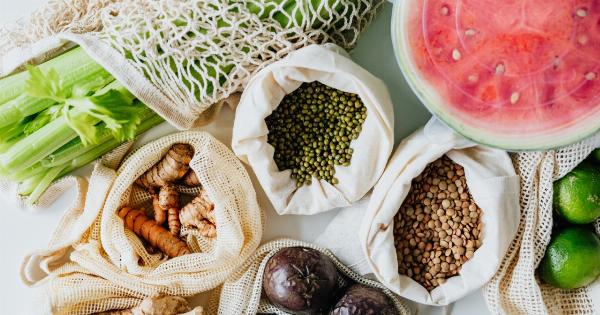The holiday season is a time for family, friends, and lots of delicious food. One inevitable result of the holiday feast is leftovers.
Whether it’s turkey, ham, or your favorite side dishes, it’s important to store and handle your leftovers properly to keep them fresh and prevent food waste.
1. Cool leftovers quickly
After you’ve finished your festive meal, it’s crucial to cool the leftovers as quickly as possible. Bacteria grow rapidly at room temperature, so leaving food out for too long can lead to spoilage and potential foodborne illnesses.
Divide the leftovers into smaller containers to speed up cooling and store them in the refrigerator within two hours.
2. Wrap tightly and use proper containers
Proper packaging is essential to maintain the quality of your holiday leftovers. Wrap each food item tightly with plastic wrap or aluminum foil to prevent air exposure.
For optimal freshness, transfer the wrapped leftovers to airtight containers that are specifically designed for food storage. Mason jars, zipper bags, or plastic containers with snap-on lids are excellent choices.
3. Label and date your leftovers
It’s easy to forget what’s inside those containers after a few days, especially if they all look similar. To avoid confusion, label each container with the name of the food item and the date it was stored.
This not only helps you keep track of what needs to be consumed first but also ensures you don’t end up with unidentified containers of mystery food at the back of your fridge.
4. Store leftovers in the right part of the fridge
Not all areas of your refrigerator are equally cold. To maximize the shelf life of your holiday leftovers, store them in the coldest part of the fridge, which is usually the back.
Avoid storing them in the fridge door, as the temperature fluctuates whenever the door is opened, which can compromise the freshness of the food.
5. Use layering and stack carefully
When storing multiple containers in the refrigerator, it’s important to utilize space efficiently. Layering your leftovers by stacking containers on top of each other can save space.
However, make sure to stack them with caution, especially if the food is fragile or prone to crushing. Avoid overloading the fridge, as overcrowding can hinder air circulation and affect cooling efficiency.
6. Reheat leftovers properly
Leftovers are meant to provide convenient meals, but it’s crucial to reheat them safely to avoid the risk of foodborne illnesses. Reheat leftovers thoroughly until they reach an internal temperature of 165°F (74°C).
Use a food thermometer to ensure proper heating. Microwaving, reheating in the oven, or stovetop are all suitable methods, depending on the type of food item.
7. Freeze for extended storage
If you have an excessive amount of holiday leftovers and know you won’t consume them within a few days, freezing is an excellent option to extend their shelf life. However, not all foods freeze well.
Cooked meats, casseroles, and some side dishes typically freeze successfully. It’s important to store leftovers in freezer-safe containers or freezer bags, ensuring they’re tightly sealed and labeled with the date, to prevent freezer burn and maintain optimal quality.
8. Incorporate leftovers into new meals
Don’t let your holiday leftovers go to waste! Get creative and find ways to incorporate them into new meals. Leftover turkey can be transformed into sandwiches, soups, or added to salads.
Mashed potatoes can become potato pancakes or toppings for shepherd’s pie. By repurposing leftovers, you not only reduce food waste but also add variety to your meals.
9. Plan your meals
Meal planning is a useful strategy for utilizing your holiday leftovers effectively. Look for recipes that specifically call for the ingredients you have on hand.
Make a list of meals you can prepare using those leftovers and plan your weekly menu accordingly. This way, you can minimize waste and ensure you’re consuming your leftovers before they spoil.
10. Donate excess food
If you find yourself with an abundance of holiday leftovers that you know you won’t be able to consume, consider donating them to local food banks or shelters.
Many organizations accept perishable food donations, particularly during the holiday season when there’s an increased need. Ensure the food is properly packaged, labeled, and within its expiration date before donating.




























